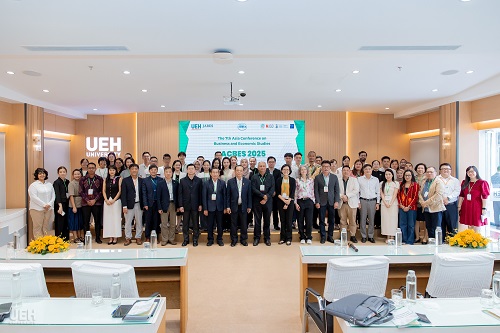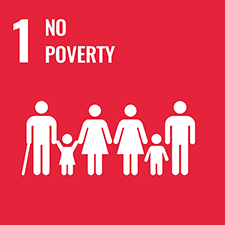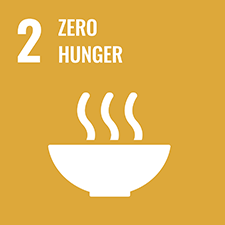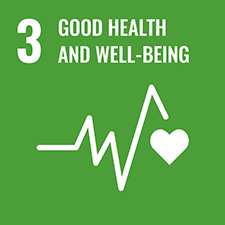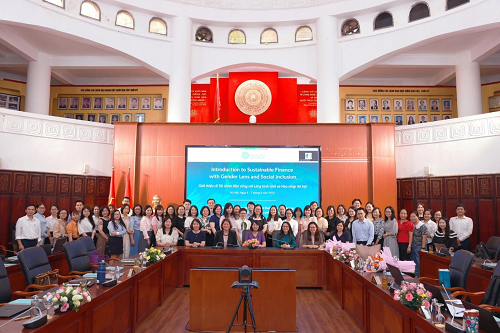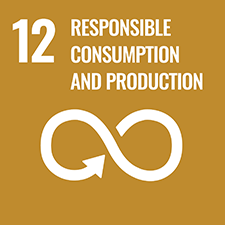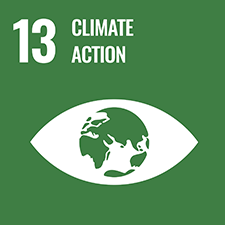
Disruption to the world order of globalization and de-marketing: Policy recommendations for Vietnam
26 Jul, 2022
The process of economic globalization has established a trade order based on the principles of the market economy applied on a global scale. However, this globalized order consists of many closely intertwined links, just one broken link can cause the whole network to collapse. The events of the Covid-19 pandemic, the Russia-Ukraine conflict in the past time have led to decisions and policies with uneconomic motives, disturbing the global order and potentially leading to the global anarchy. In this article, the author has analyzed the disturbances of the world order of globalization and de-marketing, from which, made recommendations for Vietnam to strengthen its position in the international arena in the face of these changes.

The current globalization order
Vietnam, for many years, has been assessed as a “non-market” economy, accused of implementing unfair competition measures to benefit itself, listed as dumping export items (pangasius, basa fish and so on) to currency manipulation or any policy or action that is detrimental to the accused countries, is considered a model of the “market economy”. Vietnam, despite facing many obstacles and prejudices as above, has been gradually continuing the process of international integration in all fields, including trade.
The explosion and the development of information technology has brought the world closer together. Corporations take advantage of differences among countries to reduce production costs and costs. Since then, transnational supply chains have been formed and almost no country can separate itself from the network of transnational exchanges and transactions with many interwoven chains. Globalization has changed the status quo of the world, with business decisions in accordance with the market economy principles applied on a global scale.
One obvious consequence of globalization is that it is hard to find what every person in every country in the world consumes every day that is sourced entirely from within the country. As long as any stage has cost-cutting measures without affecting quality, regardless of origin or geographical location, it can be applied to help reduce costs. This is also the rule of the market economy that developed countries always use as a guideline and standard in international trade, with price and quality being the key factors determining market share. Countries that aim towards their domestic products to stand firm, including Vietnam, must find solutions to improve quality while keeping prices affordable to retain domestic customers and promote their products to go abroad. This can be recognized as an order or rules of the game that everyone must follow in the era of globalization with deep integration and increasingly-tight trade relations between countries in the world. The increasingly close linkage mentioned above has been bringing many benefits to countries, businesses and people around the world. Vietnam not only exports many products to major economies but also has access to a variety of quality goods and services from abroad to meet the increasing needs and tastes of the people.
On the other hand, the intertwining and interwoven links of the above-mentioned globalized economy have been existing some inadequacies. No matter how strong the network is, it only takes one broken link to cause the whole network to collapse. An event or a decision unrelated to the economy can have widespread effects, not just confined to a single country. For example, the terrorist attack on September 11, 2001 in the US caused a series of flights to be suspended for security reasons and land and maritime traffic was also affected by border closures. This situation makes cross-border transportation crippled, unable to deliver goods in time, resulting in a congested supply chain.
Unstable and de-marketed world
The world situation in recent years is also witnessing events that disturb the above order. The Covid-19 pandemic spread globally in 2020, with a breakneck speed and taking the lives of many people around the world, prompting governments of countries to find ways to cope and push back. In order to prevent the spread of this unpredictable virus, curfew and social distancing measures have been put in place. This caused production and business activities around the world to stall because employees could not leave their homes to go to work. Passenger and cargo transport were also frozen for a while, contributing to the record drop in oil prices at the beginning of the pandemic. While many manufacturing and service industries have lost revenue or even went bankrupt due to lack of human resources, unable to operate with no customers, information technology corporations have earned unprecedented profits as people must depend on software and tools to support remote working. Vietnam itself also suffers serious consequences when a wave of Delta variants emerges in 2021, causing domestic manufacturing industries listed as textiles to suffer due to the inability to fulfill orders from abroad.
Most recently, when the Covid-19 epidemic re-emerged on a large scale in China, the government of this country still applied strict control measures, disrupting production and business activities in many cities in the country. In particular, Shanghai, Chinese major trading port, is one focus of the new epidemic. The curfew policy to prevent the spread of Covid-19 at all costs has caused operations in this commercial port to be blocked, affecting the global supply chain, from Tesla to Apple. The fact that Covid-19 pandemic has caused countries to seek additional ways to revive their economies by issuing stimulus packages, increasing the money supply raises the concern related to the risk of inflation rising out of control when the economy recovers. Although the US Central Bank (FED) has reassured the public that the inflation will only be temporary, inflation in the US has continued to increase, from 5.4% (in September 2021) to 5.4% (in September 2021) up to 8.5% (in March 2022) and there is no sign of remission.
In addition to the epidemic factor, the Russia-Ukraine conflict has had a significant impact on the world economy. The US and European countries launched a series of large-scale sanctions on many aspects, from economic and trade to cultural and sports to isolate Russia in the international arena. In which, it can be mentioned that the accounts of Russian organizations and individuals operating in the above countries can be frozen. This makes it impossible for Russian companies to collect and to use foreign currency profits from business activities in those countries, including income from gas exports to European countries. Even countries participating in the Russian embargo exclude Russia from SWIFT, the global payment system, as an enhanced measure to isolate Russia financially. At the same time, the above countries have been seeking to limit the use of fuel from Russia, including a complete ban on crude oil imports. In response to this situation, Russia has decided to change the currency of payment for gas to the ruble, apply to ‘unfriendly’ countries and will stop supplying gas to those countries that do not agree with the agreement suggested above.
Instability due to conflict together with the punitive policies, are, in many assessments, more political than the national interests of the Western countries that have caused a chain of events that caused oil prices to rise. Although there are times when it cools down, oil prices are still at a high level (specifically, the price of Brent crude oil delivered in July 2022 is 112.39 USD/barrel). Germany, even before the hostilities broke out, was under the pressure of not putting into operation the Nord Stream II gas pipeline connecting Russia and Germany even though the pipeline could provide ample gas for Germany and even Europe. Under the pressure from fuel prices, the increase in electricity prices is inevitable, specifically, the electricity price under the 2023 futures contract in Germany reached 228.75 euros ($242.28) per MWh, the level the highest for a contract with a term until next year since December 27 of the previous year. Pressure on energy prices will have a significant impact on the lives of people in embargo countries, especially European countries, which rely heavily on cheap energy imported from Russia. For example, in Italy, the government recommends that people only keep the air conditioner temperature no less than 25-27 degrees Celsius in the summer, and the heating temperature no more than 19-21 degrees Celsius in the winter for the purpose of saving energy (Reuters, 2022). The oil price rise also leads to production and transportation costs, contributing to more serious inflation.
In addition to energy, the war in Ukraine leads to a shortage of food and food, not only as Ukraine is considered the ‘breadbasket’ of Europe but also due to the import and export bans between Russia and other countries as Russia embargo countries. These bans include agricultural products, agricultural machinery and fertilizers, affecting agricultural production and leading to a shortage of input materials for food processing. Vietnam - an agricultural country - is also having to find ways to adapt to the scarcity of fertilizers. In addition, due to fear of widespread political crisis, some countries listed as Serbia and Kazakhstan, have imposed quotas on rice products.
While the economies of European countries are facing difficulties as a result of being heavily affected by Covid-19, the governments of these countries are at the forefront of Russia embargo. In accordance with Bloomberg statistics, EU countries, up to this article-writing time, embargo up to 490 Russian objects (while the number of the US is only 118). Restrictions and bans on trade with Russia create shortages of energy as well as food and food, contributing to more severe inflation. In addition, measures to isolate Russia financially also cause the citizens of the countries participating in the embargo to suffer because they cannot do business with Russia. These developments and consequences occurr from the fact that the market is distorted due to embargo policies. In other words, this situation could have been avoided if politicians could have been more subtle as well as this crisis was entirely man-made, ‘distorting’ international trade, disturbing the order of globalization and demarketing the world.
Will Vietnam stand firm in the new world?
In the context of the world’s tendency to change, even reverse the ‘globalization’ order as above, does Vietnam have to adapt to survive? If Vietnam continues to pursue the multilateral foreign policy, the policy of making friends with all countries and increasing economic and trade cooperation with countries around the world, a world that tends to change from mono-polarity into multipolarity can actually benefit Vietnam. However, in order to persist along this line, we must have internal economic resources, thereby, strengthening Vietnamese position in the international arena besides avoiding dependence on any superpower. In order to have economic strength, we can't just focus on ‘easy money’ sectors listed as the stock market or real estate, which are currently revealing many negative problems and in essence do not create more material wealth.
Vietnam needs to focus more on manufacturing industries, which can create material wealth for society. This will contribute to creating more real value, increasing internal resources and strengthening the autonomy of the national economy. A country that only relies on the ‘money-creating-money’ sectors to increase its GDP figure without the ability to produce tangible materials on its own, will fall into a severe crisis of scarcity when something goes wrong. One recent notable example is the crisis in Sri Lanka, in which the government declares itself unable to pay its $35 billion foreign debt (The Economist, 2022) and the economy relied too heavily on imports, almost unable to be self-sufficient, leading to scarcity of goods and increasing prices, instability and internal conflicts. Therefore, in the context that the world is unstable, the globalization process is slowing down and a new world order is emerging, Vietnam needs to have economic self-reliance, thereby maintaining its position in the international arena.
Please refer to the full research “Disruption to the world order of globalization and de-marketing: Policy recommendations for Vietnam” at conference yearbook “Reshaping the global financial system and strategies for Vietnam – Part 2”. Author group: MSc. Nguyễn Trí Minh – Faculty of Finance, UEH School of Business.
This is in series of Spreading researches and applied knowledge from UEH with “Research Contribution For All – Nghiên Cứu Vì Cộng Đồng” message, UEH would like to invite dear readers to follow Newsletter ECONOMY NO. #51 “Global chaos and adapting strategies from Vietnamese business”.
News, photos: Author group, UEH Department of Marketing – Communication

Reference:
Disis, J.E. (2022). China’s Covid lockdowns disrupt global supply chains: Eco Week. [online] Bloomberg. Available at:
Durisin, M. (2022). Food prices hold near record as Ukraine war upends trade. [online] Bloomberg. Available at:
The Economist (2022). Sri Lanka’s default could be the first of many. [online] Available at:
Gillespie, T. and Starn, J. (2022). European power prices climb to year high on sanctions threat. [online] Bloomberg. Available at:
Reuters (2022). The heat is on, Italy plans to turn down air conditioning to save energy. [online] Available at:

